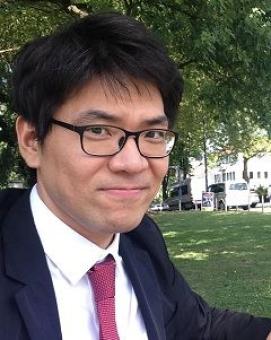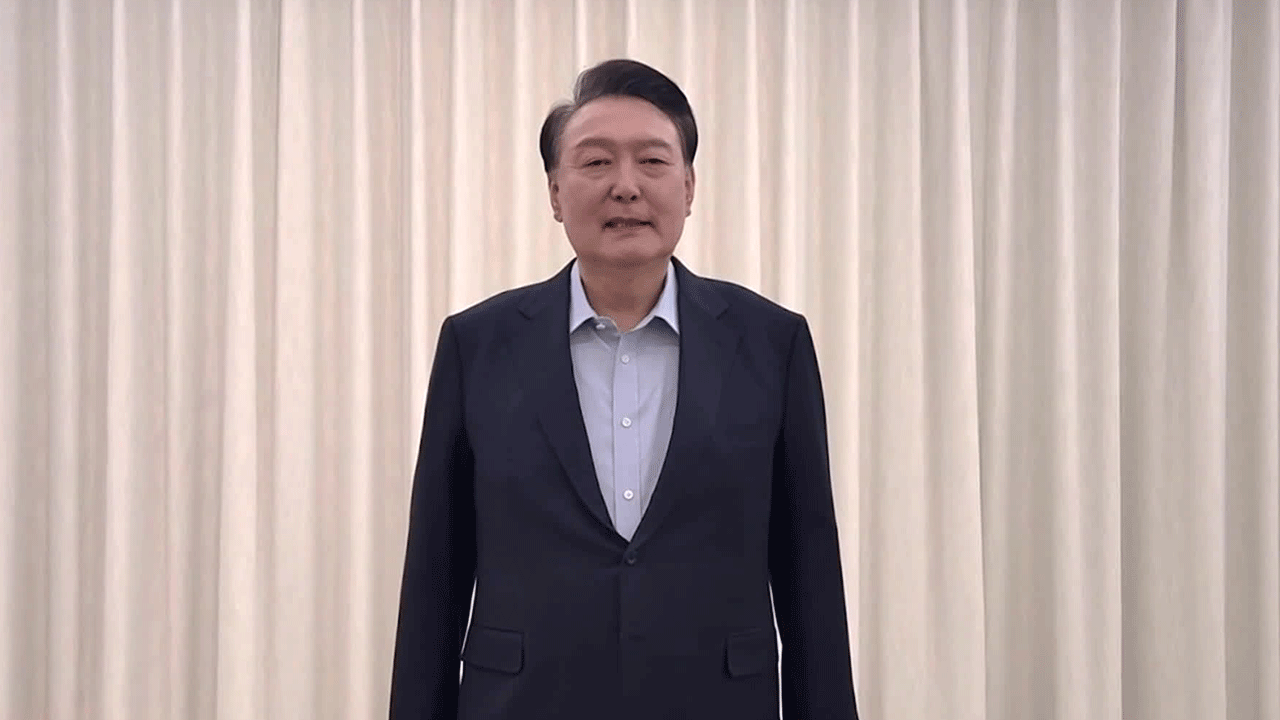2025 marks 80 years of liberation and 60 years of Korea-Japan diplomatic relations
입력 2025.01.02 (00:14)
읽어주기 기능은 크롬기반의
브라우저에서만 사용하실 수 있습니다.
[Anchor]
Now, let's take a look at the Korea-Japan and Korea-U.S.-Japan relations.
This year marks the 80th anniversary of liberation and the 60th anniversary of diplomatic relations between Korea and Japan.
Tokyo correspondent Hwang Jin-woo, given the current timing and the situation, there is a lot of interest in Korea-Japan relations.
Japan feels the same way, right?
[Report]
Yes, considering Korea's political situation and the value-centered diplomacy that the Biden administration has been working on, the significance of the 60th anniversary of Korea-Japan diplomatic relations is being viewed as a new challenge, especially since there may be changes following the inauguration of the Trump administration.
Japanese public opinion evaluates that for the past 60 years, the two countries have grown as equal partners in various fields such as economy, security, and culture.
They recognize that this is reflected in the annual exchange of 10 million people and the increase in trade volume from just 200 million dollars at the time of diplomatic relations 60 years ago to 76.6 billion dollars in 2023.
However, it was last November.
As seen during the memorial service for the Sado Mine, where the mention of forced labor was ultimately ignored, it is true that the development of relations cannot be completed by the efforts of one side alone.
Japan needs to put more effort into facing its past, while Korea should adopt a forward-looking attitude towards the future, making this year particularly important for broadening mutual understanding.
[Kim Hyong-oh/Former National Assembly Speaker/Visiting Professor at Keio University: "I see it suggesting a task and significance that the Korea-Japan relationship should develop from the ground up, led by the people, and that everyone should be involved."]
This year, while civilian cooperation will be strengthened, the uncertainty in Japanese politics remains a challenge for the development of relations.
With the House of Councilors election coming up this summer, it is unclear whether Prime Minister Ishiba, who has a weak support base within his party and low public approval ratings, can boldly meet Korea's expectations.
[Anchor]
I see. Thank you to reporters Kim Kyung-soo, Kim Min-jung, and Hwang Jin-woo for the report.
Now, let's take a look at the Korea-Japan and Korea-U.S.-Japan relations.
This year marks the 80th anniversary of liberation and the 60th anniversary of diplomatic relations between Korea and Japan.
Tokyo correspondent Hwang Jin-woo, given the current timing and the situation, there is a lot of interest in Korea-Japan relations.
Japan feels the same way, right?
[Report]
Yes, considering Korea's political situation and the value-centered diplomacy that the Biden administration has been working on, the significance of the 60th anniversary of Korea-Japan diplomatic relations is being viewed as a new challenge, especially since there may be changes following the inauguration of the Trump administration.
Japanese public opinion evaluates that for the past 60 years, the two countries have grown as equal partners in various fields such as economy, security, and culture.
They recognize that this is reflected in the annual exchange of 10 million people and the increase in trade volume from just 200 million dollars at the time of diplomatic relations 60 years ago to 76.6 billion dollars in 2023.
However, it was last November.
As seen during the memorial service for the Sado Mine, where the mention of forced labor was ultimately ignored, it is true that the development of relations cannot be completed by the efforts of one side alone.
Japan needs to put more effort into facing its past, while Korea should adopt a forward-looking attitude towards the future, making this year particularly important for broadening mutual understanding.
[Kim Hyong-oh/Former National Assembly Speaker/Visiting Professor at Keio University: "I see it suggesting a task and significance that the Korea-Japan relationship should develop from the ground up, led by the people, and that everyone should be involved."]
This year, while civilian cooperation will be strengthened, the uncertainty in Japanese politics remains a challenge for the development of relations.
With the House of Councilors election coming up this summer, it is unclear whether Prime Minister Ishiba, who has a weak support base within his party and low public approval ratings, can boldly meet Korea's expectations.
[Anchor]
I see. Thank you to reporters Kim Kyung-soo, Kim Min-jung, and Hwang Jin-woo for the report.
■ 제보하기
▷ 카카오톡 : 'KBS제보' 검색, 채널 추가
▷ 전화 : 02-781-1234, 4444
▷ 이메일 : kbs1234@kbs.co.kr
▷ 유튜브, 네이버, 카카오에서도 KBS뉴스를 구독해주세요!
- 2025 marks 80 years of liberation and 60 years of Korea-Japan diplomatic relations
-
- 입력 2025-01-02 00:13:59

[Anchor]
Now, let's take a look at the Korea-Japan and Korea-U.S.-Japan relations.
This year marks the 80th anniversary of liberation and the 60th anniversary of diplomatic relations between Korea and Japan.
Tokyo correspondent Hwang Jin-woo, given the current timing and the situation, there is a lot of interest in Korea-Japan relations.
Japan feels the same way, right?
[Report]
Yes, considering Korea's political situation and the value-centered diplomacy that the Biden administration has been working on, the significance of the 60th anniversary of Korea-Japan diplomatic relations is being viewed as a new challenge, especially since there may be changes following the inauguration of the Trump administration.
Japanese public opinion evaluates that for the past 60 years, the two countries have grown as equal partners in various fields such as economy, security, and culture.
They recognize that this is reflected in the annual exchange of 10 million people and the increase in trade volume from just 200 million dollars at the time of diplomatic relations 60 years ago to 76.6 billion dollars in 2023.
However, it was last November.
As seen during the memorial service for the Sado Mine, where the mention of forced labor was ultimately ignored, it is true that the development of relations cannot be completed by the efforts of one side alone.
Japan needs to put more effort into facing its past, while Korea should adopt a forward-looking attitude towards the future, making this year particularly important for broadening mutual understanding.
[Kim Hyong-oh/Former National Assembly Speaker/Visiting Professor at Keio University: "I see it suggesting a task and significance that the Korea-Japan relationship should develop from the ground up, led by the people, and that everyone should be involved."]
This year, while civilian cooperation will be strengthened, the uncertainty in Japanese politics remains a challenge for the development of relations.
With the House of Councilors election coming up this summer, it is unclear whether Prime Minister Ishiba, who has a weak support base within his party and low public approval ratings, can boldly meet Korea's expectations.
[Anchor]
I see. Thank you to reporters Kim Kyung-soo, Kim Min-jung, and Hwang Jin-woo for the report.
Now, let's take a look at the Korea-Japan and Korea-U.S.-Japan relations.
This year marks the 80th anniversary of liberation and the 60th anniversary of diplomatic relations between Korea and Japan.
Tokyo correspondent Hwang Jin-woo, given the current timing and the situation, there is a lot of interest in Korea-Japan relations.
Japan feels the same way, right?
[Report]
Yes, considering Korea's political situation and the value-centered diplomacy that the Biden administration has been working on, the significance of the 60th anniversary of Korea-Japan diplomatic relations is being viewed as a new challenge, especially since there may be changes following the inauguration of the Trump administration.
Japanese public opinion evaluates that for the past 60 years, the two countries have grown as equal partners in various fields such as economy, security, and culture.
They recognize that this is reflected in the annual exchange of 10 million people and the increase in trade volume from just 200 million dollars at the time of diplomatic relations 60 years ago to 76.6 billion dollars in 2023.
However, it was last November.
As seen during the memorial service for the Sado Mine, where the mention of forced labor was ultimately ignored, it is true that the development of relations cannot be completed by the efforts of one side alone.
Japan needs to put more effort into facing its past, while Korea should adopt a forward-looking attitude towards the future, making this year particularly important for broadening mutual understanding.
[Kim Hyong-oh/Former National Assembly Speaker/Visiting Professor at Keio University: "I see it suggesting a task and significance that the Korea-Japan relationship should develop from the ground up, led by the people, and that everyone should be involved."]
This year, while civilian cooperation will be strengthened, the uncertainty in Japanese politics remains a challenge for the development of relations.
With the House of Councilors election coming up this summer, it is unclear whether Prime Minister Ishiba, who has a weak support base within his party and low public approval ratings, can boldly meet Korea's expectations.
[Anchor]
I see. Thank you to reporters Kim Kyung-soo, Kim Min-jung, and Hwang Jin-woo for the report.
-
-

황진우 기자 simon@kbs.co.kr
황진우 기자의 기사 모음
-
이 기사가 좋으셨다면
-
좋아요
0
-
응원해요
0
-
후속 원해요
0















이 기사에 대한 의견을 남겨주세요.